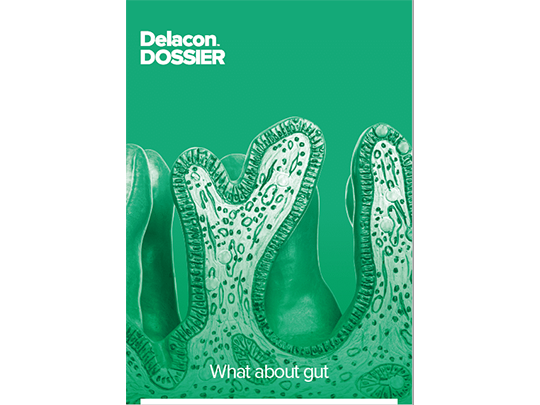What about … anti-quorum sensing activity of phytogenics?

Antibiotic replacement?
The discovery of bacteria as an etiological factor for a wide range of medical conditions in the late 19th century promoted the development and usage of appropriate therapeutic treatments. In this regard, antibiotics have been a Milestone achievement to combat bacterial infections. However, the use of antibiotics results in strong selection pressure in bacterial communities to develop and spread resistant traits. Read about the anti-quorum sensing activity of phytogenics in our latest Dossier.
Alternatives are necessary
One major decision made to reduce the risk of antibiotic resistance development was the removal of antibiotics used as antimicrobial growth promoters (AGP) in livestock production. Consequently, there has been an increasing search for alternatives to replace AGP. One group of candidates for this purpose are substances derived from plants, effecting physiological processes of bacteria or their hosts. Many of these phytogenics have been shown to exhibit antimicrobial effects and have been used in traditional medicine in many areas of the world, for example. Most of the research about the antimicrobial effects of phytogenics has been done on plant essential oils and their components. It has been shown for phytogenic compounds such as carvacrol and eugenol, that they can disrupt cytoplasmic membranes (Gill & Holley, 2006).
High concentrations as major limitation
One major limitation in their use is the high concentration necessary for most phytogenics for direct growth inhibition of bacteria, often exceeding any applicable dosage in animal feedstuff due to high costs and negative influence on palatability when overdosed. Therefore, it is also necessary to consider alternative modes of action for AGP replacement candidates such as phytogenics. In this context, suppressing virulence factors instead of directly killing harmful microorganisms has recently gained substantial interest.
Current research is especially investigating the possibilities on influencing quorum sensing (QS), which is an important mechanism to regulate virulence gene expression in many pathogenic bacteria (Boyen et al., 2009).
Discover more about quorum sensing inhibition in our new Dossier #Whataboutgut
Inform about potential to interfere with quorum sensing using phytogenics, trends in animal feeding, challenges in monogastrics and much more…

Tobias Aumiller
Scientific Lead and deputy Head of R&D at Delacon. In 2015, Tobias Aumiller joined the Delacon family as Research and Development Manager for Swine and Microbiology. He received his diploma in Technical Biology and completed his Ph.D. in animal nutrition at the University Hohenheim in 2015, focusing on feed-gut-microbiota interaction. In his leisure time Tobias loves playing table tennis and also participates in championships.

Anne Oberdorf
Anne has always been fascinated by the unknown, the diversity and beauty of nature. Her love for nature brought her to Delacon in 2018 after studying agricultural sciences, where she worked as Technical Communications Manager and later as Product Manager Aquaculture. Since February 2021, she has been taking a new, natural career path outside of Delacon.










